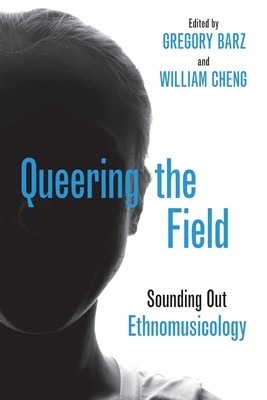
- We will send in 10–14 business days.
- Publisher: Oxford University Press, USA
- ISBN-10: 0190458038
- ISBN-13: 9780190458034
- Format: 15.8 x 23.4 x 2.5 cm, softcover
- Language: English
- SAVE -10% with code: EXTRA
Queering the Field (e-book) (used book) | bookbook.eu
Reviews
Description
Drawing on ethnographic research and often deeply personal experiences with musical cultures, Queering the Field: Sounding out Ethnomusicology unpacks a history of sentiment that veils the treatment of queer music and identity within the field of ethnomusicology. The thematic structure of the volume reflects a deliberate cartography of queer spaces in the discipline-spaces that are strongly present due to their absence, are marked by direct sonic parameters, or are called into question by virtue of their otherness. As the first large-scale study of ethnomusicology's queer silences and queer identity politics, Queering the Field directly addresses the normativities currently at play in musical ethnography (fieldwork, analysis, performance, transcription) as well as in the practice of musical ethnographers (identification, participation, disclosure, observation, authority). While rooted in strong narrative convictions, the authors frequently adopt radicalized voices with the goal
of queering a hierarchical sexual binary.
The essays in the volume present rhetorical and syntactical scenarios that challenge us to read in prescient singular ways for future queer writing and queer thought in ethnomusicology.
EXTRA 10 % discount with code: EXTRA
The promotion ends in 19d.10:03:53
The discount code is valid when purchasing from 10 €. Discounts do not stack.
- Publisher: Oxford University Press, USA
- ISBN-10: 0190458038
- ISBN-13: 9780190458034
- Format: 15.8 x 23.4 x 2.5 cm, softcover
- Language: English English
Drawing on ethnographic research and often deeply personal experiences with musical cultures, Queering the Field: Sounding out Ethnomusicology unpacks a history of sentiment that veils the treatment of queer music and identity within the field of ethnomusicology. The thematic structure of the volume reflects a deliberate cartography of queer spaces in the discipline-spaces that are strongly present due to their absence, are marked by direct sonic parameters, or are called into question by virtue of their otherness. As the first large-scale study of ethnomusicology's queer silences and queer identity politics, Queering the Field directly addresses the normativities currently at play in musical ethnography (fieldwork, analysis, performance, transcription) as well as in the practice of musical ethnographers (identification, participation, disclosure, observation, authority). While rooted in strong narrative convictions, the authors frequently adopt radicalized voices with the goal
of queering a hierarchical sexual binary.
The essays in the volume present rhetorical and syntactical scenarios that challenge us to read in prescient singular ways for future queer writing and queer thought in ethnomusicology.


Reviews